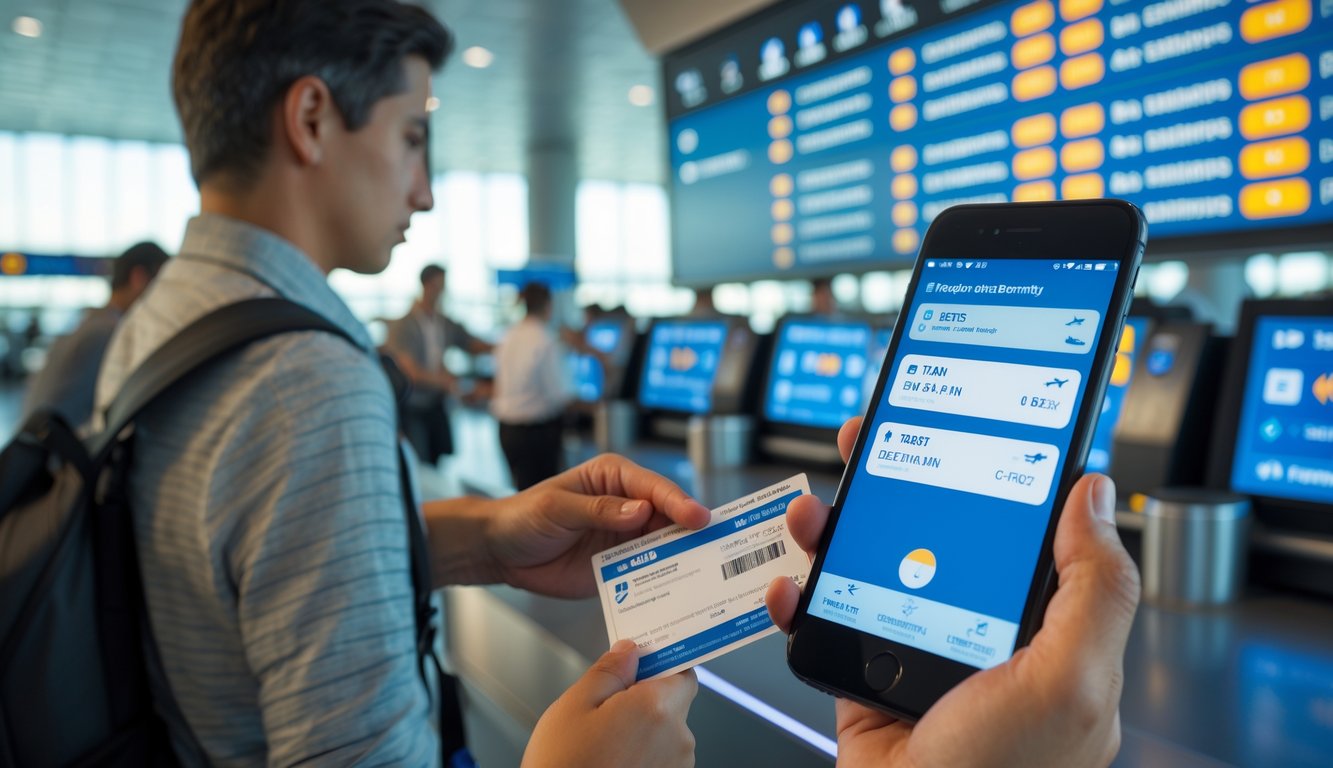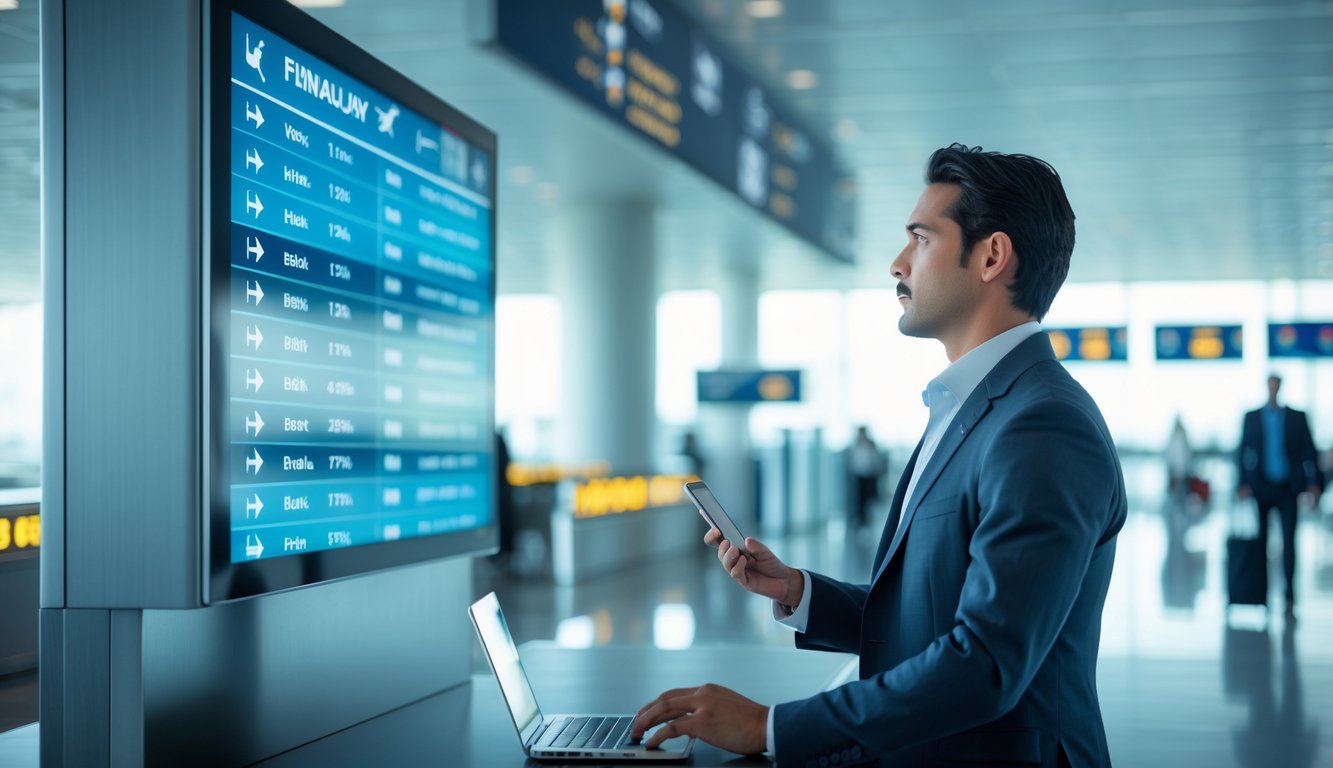
Modifying and Rebooking Your Itinerary

Changing flights feels like a casino where the odds are always against you. Airlines love tweaking their penalties and hiding the news deep in the support section, so by the time you notice, you’ve already lost part of your refund. I check for updates obsessively, but honestly, what’s the point? “Flexible rebooking” now costs more than the whole trip did last year.
Steps for Itinerary Adjustments
So you go to “Manage Booking”—if you can even find it. Sometimes it’s $100 just to move a flight by 45 minutes, unless you forked out for a flexible fare, which, let’s be real, almost nobody does on purpose. Refundable tickets? Sure, you’re safe. Non-refundable? Prepare for “service charges,” “processing fees,” and whatever else they invent. American changed their policy three times this spring and never bothered to email.
You need your confirmation code (which I always lose), and then you’re stuck with whatever flights are left—could be a 6am connection through Omaha. Air Canada’s rebooking advice hides all the real warnings in legalese, and the list of valid changes is so short it’s almost a joke. Here’s what usually happens:
| Ticket Type | Change Allowed? | Typical Penalty |
|---|---|---|
| Basic Economy | Rarely | Highest ($75–$200) |
| Main Cabin/Standard | Usually | Moderate ($50–$150) |
| Refundable/Flexible | Yes | Often Free/Low Fee |
If you rebook within 24 hours of buying, most airlines let you switch with no penalty. After that? It’s all fees unless you’ve got a doctor’s note or, I don’t know, a court order.
Rebooking After a Flight Cancellation
Cancellations don’t care if you’re missing a wedding or a job interview. I’ve stood in line for hours, only to get offered a flight 12 hours later. The law says airlines have to rebook you “as soon as possible,” but what does that even mean? If you ask for the “next available partner flight,” sometimes you get lucky, but you have to know to ask.
I’ve tried all the tricks—stand at the desk, app open, DM customer service—still get three totally different answers. If your delay is over three hours or they just cancel, you’re supposed to get a rebooking or refund by law in a lot of places. Official government guidance says they’ll put you on the next flight, but I’ve had to fight for meal vouchers at the same time.
Don’t trust the credits, either—some last 12 months, some expire after 6. I once argued with a rep who said my canceled flight never existed, but there it was, buried in their system. Take screenshots. Always.
Cancellation, Refunds, and Credits
That poster behind the counter promising “easy refunds”—biggest lie in travel. I’ve seen two people with the same ticket code get totally different results: one gets cash, one gets a credit, and the third gets nothing but a “sorry.” No call center agent ever admits why, and the rules seem to change overnight. I kind of enjoyed arguing for my own refund in Brisbane last year when the policy literally changed that morning.
Understanding Travel Credits and Vouchers
Airlines love to say a travel voucher is “just as good” as a refund—sure, if you’re psychic and know you’ll use it before it expires. Credits sound fine until you read the small print: non-transferable, expires in 12 months, sometimes can’t even cover taxes. And rebooking fees? No cap.
I’ve never managed to transfer a credit, no matter how many agents say it’s “easy.” Someone at Flight Hacks says if you let the airline cancel, you might get a refund, but if you cancel, it’s credits or nothing. I wonder how many millions in credits just expire, sitting in accounts nobody remembers. And of course, you can’t combine old credits—so if you have three, too bad.
Automatic Refunds Versus Travel Vouchers
“Automatic refunds” are a myth. Unless you fit some narrow, shifting criteria, you’ll get a voucher, not cash. Qantas and the rest love nudging you into a travel voucher even if the law says you should get money back. Australian Consumer Law technically protects you, but good luck—my refund took 78 days and about 10 emails.
My friend got a voucher last month after her flight was canceled, just because she clicked “accept” before reading the fine print. Once you do that, you’re locked out of a refund, and nobody ever reverses it. But if you call and threaten a chargeback, suddenly you’re talking to a manager who can actually help. Funny how that works.
Cancellation Versus Change Fees
Here’s the part nobody warns you about: canceling and changing are totally different, and airlines can jack up fees whenever they feel like it. Qantas, for example, lets you change flights but charges “change fees” that are sometimes half the ticket price. Ticket change guides all say non-refundable fares mean credits, not refunds, and those change/cancellation fees can jump for no reason (I saw a $120 fee turn into $220 in an hour).
Don’t try to find logic. One day, it’s a percentage; next, it’s a flat fee; sometimes, they just say “at our discretion.” I’ve had dates trigger a new fee schedule, totally different from just canceling. Natural disasters or schedule changes sometimes force their hand on refunds, but only if you catch it before they auto-send a voucher. It’s like playing a game you never signed up for.
Loyalty Programs and Points Protection
Honestly, loyalty programs just make the mess worse. They dangle “protection,” but it’s all a tangle of conditions, fare classes, and weird exceptions. Sometimes I think they’re just making it up as they go.
Using Points and Miles for Flexible Travel
People always say, “Just use points for flexibility!” Yeah, right. The rules change constantly—American and British Airways both tweaked points and redemption rules last year, and I watched my Delta SkyMiles requirement double overnight for the same flight. No warning, no explanation.
Even when you can cancel award flights, the policies are a maze. Top-tier members might get fees waived, but for the rest of us, it’s a guessing game. Virgin Atlantic lets you use points on Delta, but then you’re playing by a whole new set of partner rules, which The Telegraph rants about. And have you ever seen a penalty calculator before booking? Me neither. If you’ve ever tried to rebook with points after finding a cheaper fare, you’re probably still listening to hold music.
Protecting Rewards When Changing Flights
Protection? That word gets thrown around a lot, but honestly, every airline seems to have its own secret definition. Sometimes your membership means you can change flights for free, but that’s almost never true unless you’re some kind of platinum unicorn. I mean, if you’re elite, the rules just sort of bend for you, don’t they? For the rest of us, yeah, good luck. There’s always some fine print lurking—remember those pandemic waivers? Airlines let those expire and just kind of hoped you wouldn’t notice.
Suddenly, you’re staring at a “points redeposit fee” or you lose a promo you spent months collecting. Seamless? Not even close. Try poking around United or American—sometimes changing a flight costs more miles than you used to book it in the first place, thanks to their “dynamic pricing” (which, side note, is total chaos—see here). I’ve had “protected” points just melt away after a glitch, and when I called, customer service acted like I was making it up. No two airlines handle these penalties the same way. They keep the rules vague on purpose, and you only find out when you try to make a change.



